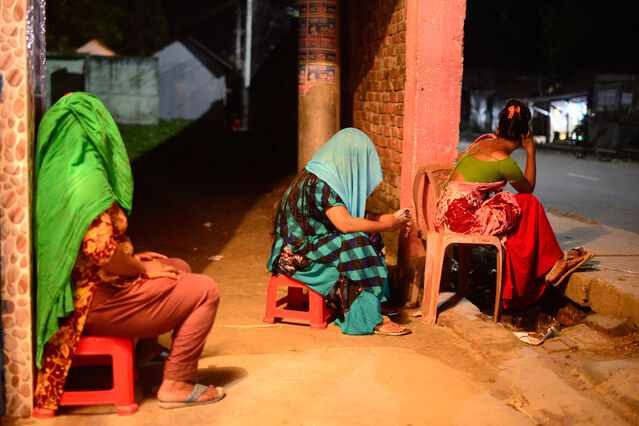Teamwork
A New Effort to Stop Human Trafficking
The push to eliminate trafficking in one country is a model for all.
Posted January 23, 2022 Reviewed by Hara Estroff Marano
Key points
- The big push is to eliminate all human trafficking in Bangladesh.
- One goal is to implement a wide variety of approaches to discover what works best.
- The emerging best practices can be applied to help eliminate trafficking everywhere.
Attempts to end the $150 billion a year human trafficking industry too often resemble whack-a-mole. An organization may attack one part of human trafficking, only to see it pop up elsewhere.
The UBS Optimus Foundation has developed a unique approach:. Instead of focusing on pieces of the problem, it's taking a holistic approach, using everything that’s known about trafficking to try to eliminate it in one country.
Eliminating Trafficking in One Country
According to Nalini Tarakeshwar, head of programs at Optimus, the plan is to marshal all the intellectual, experiential, and financial resources possible with the goal of eliminating trafficking in Bangladesh. The approach would include rescue, restoration, prevention, deterrence, and every known method for combating trafficking.
The goal isn’t limited to eliminating trafficking in one country. The people working on the project want to discover what works in one country, and then to develop a map of best practices that could be scaled for use throughout the world.
Tarakeshwar sees three parts to this effort:
1. A coordinated, holistic approach. Tarakeshwar says, “Organizations are doing more to integrate their efforts as opposed to simply working side-by-side.” She’s particularly pleased that,“on-the-ground organizations have seen the need for this coordination and are embracing it.”
2. An evidence-based approach. As Tarakeshwar puts it, “We need to ensure that we are learning from what we do. We need to evaluate the results of randomized control trials to see if trafficking is reduced.” For her, evidence is a key factor.
3. A collaborative approach among donors. Tarakeshwar particularly likes to see collaboration among philanthropists in combating trafficking. “By pooling funds and expertise with fellow philanthropists," she says, "the donors can reinforce each other’s efforts, and achieve exponentially greater impact.”
Why Bangladesh?
Optimus considered several countries before deciding on Bangladesh. Factors that influenced the decision include: governmental cooperation at the highest level; robust and effective local anti-trafficking organizations; and a civil society committed to addressing root causes.
The problems Bangladesh faces are acute. With a population of 163 million, it’s one of the most densely populated countries in the world. Poverty has encouraged such practices as bonded labor, and parents who can’t afford to feed their children and find that the only choice available to them may be selling their children to traffickers.

Another driver is an almost total lack of deterrence. “Of 6000 people arrested in the last few years,” points out Tarakeshwar, “only 25 did time. That translates into a prosecution rate of less than 4 per 1000. It’s appalling.”
The very good news for Bangladesh is that the country is making progress in attacking human slavery. The U.S. State Department rates every country on its record on human trafficking, and Bangladesh has just moved up in the State Department’s ratings.
A Five-Year Plan
The UBS Optimus Foundation has ambitious goals for the next five years, according to Tarakeshwar.
1. Creation of a pilot program in one area. The pilot will focus on reducing sexual trafficking through a combination of increased awareness, empowerment for members of affected communities, and engaging survivors in the leadership efforts.
2. Supporting government to strengthen the criminal justice system. Ideally these efforts would reduce both domestic and cross-border trafficking, and they would increase survivors’ trust in the criminal justice system, making victims more willing to testify against their traffickers. The result would be increased deterrence.
3. Engaging philanthropists, partly for their financial support but additionally because, as they become involved, they become ambassadors for change. When they work with NGOs and the government, they become a force multiplier, achieving results that no government or group or individual could achieve on their own.
Tarakeshwar is proud that the UBS Optimus Foundation is taking on the issue of human trafficking. “Optimus has been willing to take on one of the darkest issues facing society. For me, it’s an honor to work with people who care deeply about the most vulnerable children. These caring people are dedicating their resources so that these children can grow up in a safe, secure and caring environment."
References




